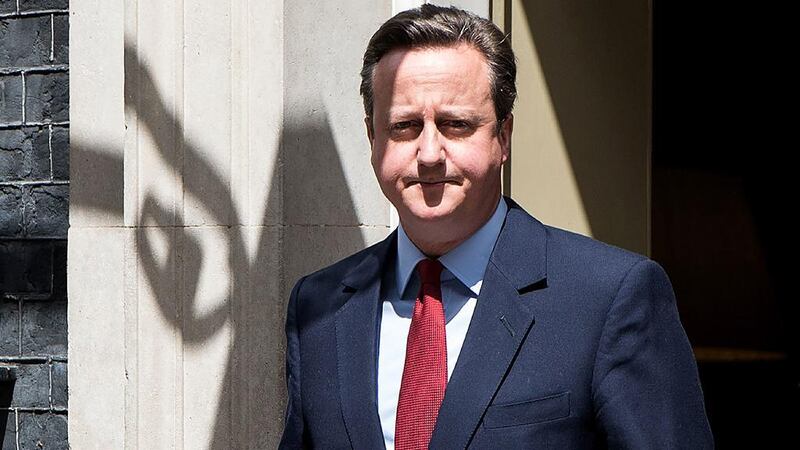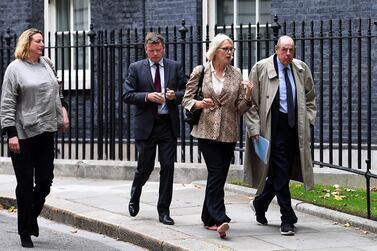Former UK Prime Minister David Cameron has admitted he is “desperately” worried about what will happen to the country after Brexit.
Mr Cameron, whose decision to hold a referendum on the UK’s European Union membership led to Brexit, also appeared to criticise fellow Conservative MPs who said the UK was powerless to stop Turkey joining the bloc.
He was giving his first interview to promote his new book that details his time as opposition leader, Downing Street and Brexit.
"I think about this every day. Every single day I think about it, the referendum and the fact that we lost and the consequences and the things that could have been done differently, and I worry desperately about what is going to happen next," he told The Times.
"I think we can get to a situation where we leave but we are friends, neighbours and partners. We can get there, but I would love to fast-forward to that moment because it’s painful for the country and it’s painful to watch.”
Asked if he had trouble sleeping, Mr Cameron said: “I worry about it a lot. I worry about it a lot.”
The former UK prime minister, who backed the Remain campaign, said the referendum result in 2016 left him “hugely depressed”.
“I was miserable about giving up the job I loved working for the country I loved,” Mr Cameron added.
Within hours of losing the European referendum – by 52 per cent to 48 per cent – Mr Cameron announced his resignation.
“Look, having a referendum was not a decision that I took in any way lightly,” Mr Cameron said, adding that there was “huge political pressure” in the UK’s fraught relationship with Europe.
Mr Cameron said he hoped the book would explain why he felt a referendum was inevitable.
“I totally recognise the uncertainty has been painful and difficult. It’s been difficult for all sorts of people in all sorts of walks of life,” said Mr Cameron, who has been heavily criticised in some parts for holding the referendum in 2016 and who has kept a low public profile ever since.
He also hit out at Eurosceptic MPs such as Mr Johnson who had warned against Turkey potentially joining the EU against the will of some member nations of the bloc.
“Well, it was ridiculous. There was a moment when I think it was Penny Mordaunt said on a Sunday morning show, ‘We have no power to stop Turkey joining the EU.’ It’s just not true,” said Mr Cameron.
The UK has still not left the EU and parliament is at loggerheads over what to do next.
Prime Minister Boris Johnson wants to depart with a new, negotiated withdrawal agreement with Brussels but says he is prepared to leave without a deal on October 31, which critics say would devastate the UK economy.
His predecessor Theresa May delayed Brexit after seeing her divorce deal rejected by parliament three times.
When asked if he would change his decision if he had known the political upheaval it would cause, Mr Cameron remained convinced that the threat of a referendum was essential to British negotiations with Europe.
“I don’t think we would have got anywhere,” Mr Cameron said before again underlining his belief that a referendum was inevitable
“I think the referendum was both necessary to achieve anything in the renegotiation and necessary in and of itself, because it was coming.”







